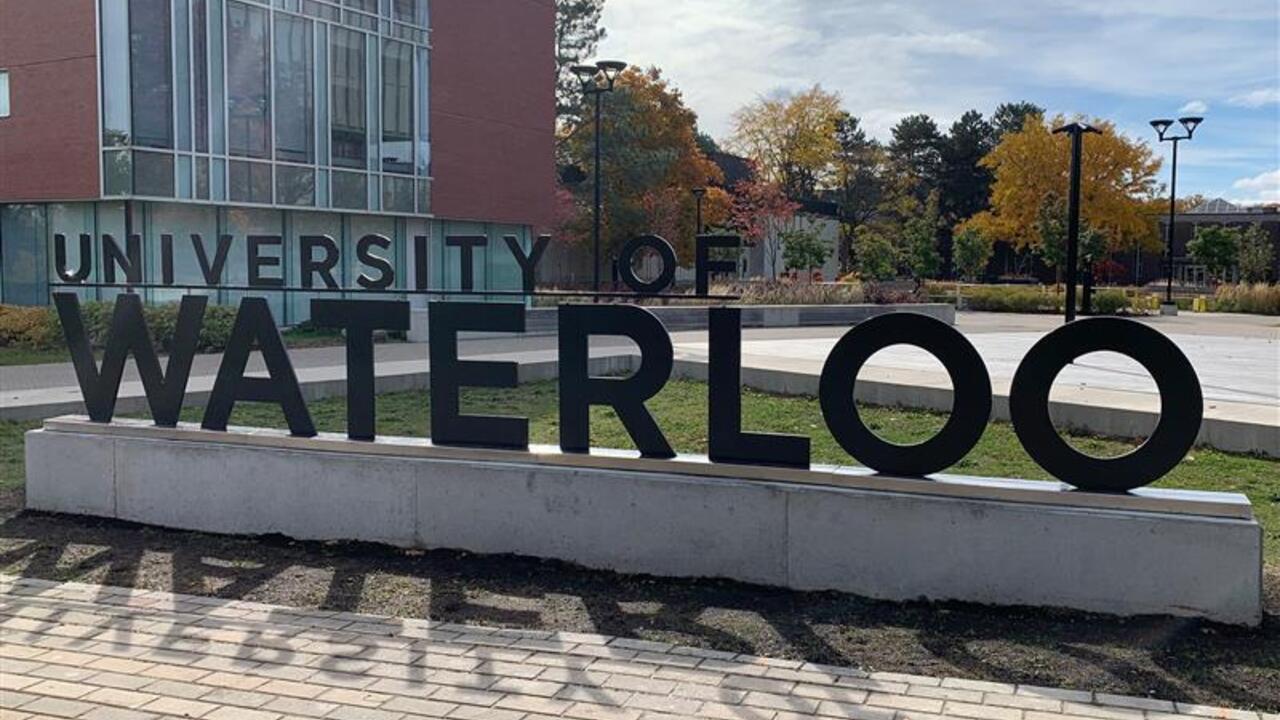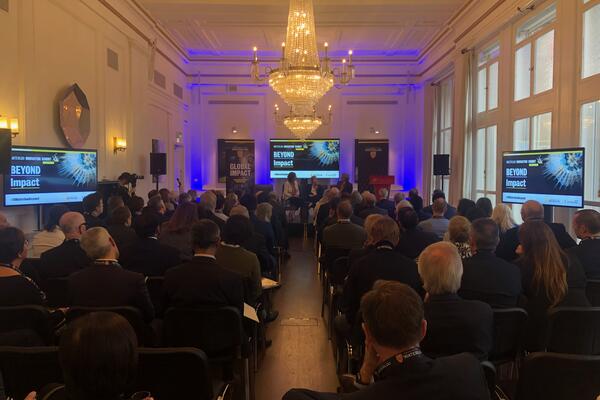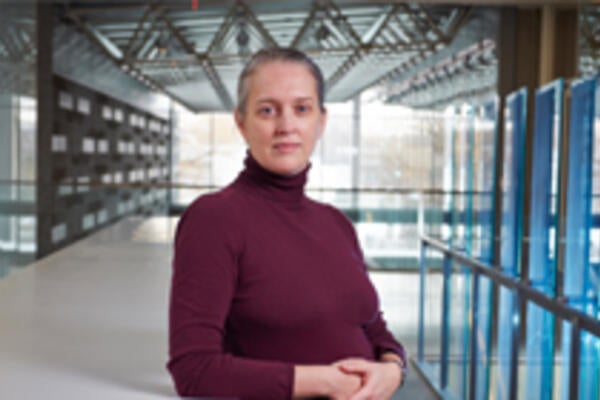
Researchers from IQC at the University of Waterloo present quantum device research
Researchers from the Institute for Quantum Computing at the University of Waterloo will present the latest research into quantum devices.

Researchers from the Institute for Quantum Computing at the University of Waterloo will present the latest research into quantum devices.
By Media RelationsWATERLOO, Ont. (Thursday, Feb. 14, 2013) - Researchers from the Institute for Quantum Computing at the University of Waterloo will present the latest research into quantum devices at the American Association for the Advancement of Science (AAAS) annual meeting in Boston this week.
Quantum sensors introduce unprecedented exploration and control of the nanoscale world. Uniquely harnessing the laws of quantum mechanics, quantum sensors have the potential to achieve the highest possible sensitivity, efficiency and selectivity allowed by nature.
Professor Raymond Laflamme, IQC executive director, will lead a symposium sharing quantum sensor research from Canada Excellence Research Chair and IQC member, Professor David Cory along with Professor Amir Yacoby of Harvard and Professor Raffi Budakian of University of Illinois at Urbana-Champaign.
Fields such as quantum information science, nanotechnology and materials science have probed continually deeper into the atomic realm, pushing present-day sensor technology to its limits. With systematic methodologies for designing quantum sensors, quantum information science provides algorithms and techniques for overcoming unwanted noise and artifacts. Quantum sensors will provide new insights and discoveries in material structures, 3D molecular imaging, spintronics and more.
This symposium will highlight three experimental approaches to quantum sensors: magnetic resonance force microscopy, scanning probe microscopy with a diamond tip, and neutron interferometry. The speakers will explore the key questions, challenges and breakthroughs in their respective approaches, and discuss the important roles quantum sensors will play in science and next-generation technology.
Quantum Sensors: Toward the Ultimate Limits will be presented at the AAAS annual meeting on Friday, February 15, 2013 at 8 a.m. – 9:30 a.m. at the Hynes Convention Centre, room 306.
The Institute for Quantum Computing (IQC) is a multidisciplinary scientific research institute at the University of Waterloo. Our research focuses on harnessing the quantum laws of nature to discover and develop powerful new technologies that will transform information technology and drive the 21st century economy. IQC research bridges theory and experiments in quantum computing, quantum communication and other quantum devices through the collaboration of over 200 computer scientists, engineers, mathematicians, physical scientists and students. Established in 2002, IQC also offers graduate and post graduate programs and educational outreach activities that inspire scientific discovery in the realm of quantum mechanics.
In just half a century, the University of Waterloo, located at the heart of Canada's technology hub, has become one of Canada's leading comprehensive universities with 35,000 full- and part-time students in undergraduate and graduate programs. Waterloo, as home to the world's largest post-secondary co-operative education program, embraces its connections to the world and encourages enterprising partnerships in learning, research and discovery. In the next decade, the university is committed to building a better future for Canada and the world by championing innovation and collaboration to create solutions relevant to the needs of today and tomorrow. For more information about Waterloo, visit www.uwaterloo.ca.
- 30 -
Tobi Day-Hamilton
Associate Director, Communications and External Relations
Institute for Quantum Computing
University of Waterloo
519.888.4567 x38933
tlday@uwaterloo.ca
http://www.iqc.uwaterloo.ca
Martin Laforest, PhD
Senior Manager, Scientific Outreach
Institute for Quantum Computing
University of Waterloo
mlafores@uwaterloo.ca

Read more
Leaders tell Waterloo Innovation Summit to fund basic research to commercialize unexpected outcomes

Read more
From 74 engineering students in 1957 to 198,000 alumni six decades later

Read more
Waterloo Philosophy Professor Heather Douglas has been named a Fellow of the American Association for the Advancement of Science (AAAS)
The University of Waterloo acknowledges that much of our work takes place on the traditional territory of the Neutral, Anishinaabeg and Haudenosaunee peoples. Our main campus is situated on the Haldimand Tract, the land granted to the Six Nations that includes six miles on each side of the Grand River. Our active work toward reconciliation takes place across our campuses through research, learning, teaching, and community building, and is co-ordinated within the Office of Indigenous Relations.